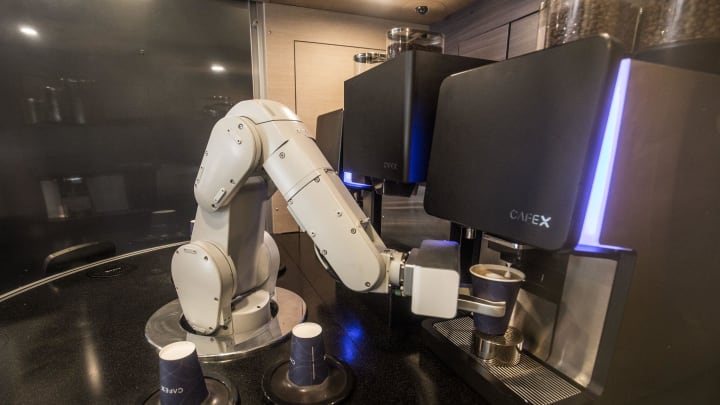Travelers in Kenya Can Be Treated to Unique, Futuristic Dinning Experience

Nairobi, Kenya is considered a city that is at the forefront when it comes to tech innovation. It is considered the tech hub of East Africa, being dubbed The Silicon Savanna, a play on Silicon Valley in the south San Francisco Bay Area.
Always looking for new ways to advance technologically, the Kenyan capital has introduced a unique dining experience for anyone who is visiting the country. A first-of-its-kind restaurant in Nairobi and East Africa called Robot Cafe.
The experience is just as the name would suggest. Among the humans on the waitstaff, there are three robots that are also helping, making this a destination for anyone visiting Nairobi.
The robots, named Claire, R24 and Nadia, are controlled by the human waitstaff via an app on their iPad. Humans are still a necessity for the restaurant to operate functionally as not every diner uses an online app to order their meals.
European and Asian eateries have already begun intertwining robots into their restaurants, which is where Mohammed Abbas, the owner of the Robot Cafe, got the idea to bring them to Africa. He sees it as a form of entertainment, as people want to experience something different.
“It was very expensive to import the robots,” he says, but adds that the investment has borne fruit, because the restaurant is “often busy with curious customers” who come to experience robot service, shared Desmond Tiro and Evelyne Musambi of the Associated Press, via ABC News.
Having the robots certainly makes running food out to tables easier. Humans place the food on the robot’s tray and they are on their way.
While full conversations with Claire, R24 and Nadia aren’t possible, they are programmed with a few pleasantries. While some people are afraid this will eliminate jobs for people, manager John Kariuki doesn’t foresee that ever happening because robots cannot do some of the things needed for a restaurant to function properly.
“At no point are the robots able to fully function in all the services that are supposed to be ongoing in the restaurant without the human touch," he said. "The robots are actually way too expensive for us to acquire, so if you are trying to save money, it is not going to work if you choose to go the robotic way.”
What we could see more of, in the opinion of Edith Ojwang, a hospitality industry expert, is humans and robots co-existing in restaurants.
“The hospitality industry is very diverse. We have clients who will prefer robotic service and full automation, while we also have clients who will prefer human service, the human touch and warmth that comes with human service so it is not entirely a threat to human labor because of the diverse nature of the hospitality client base,” she said.
For now, the Robot Cafe remains a fun experience for anyone looking for something different. The investment Abbas made is paying off, as this could be something that more and more restaurants around the world begin to implement over the years.
